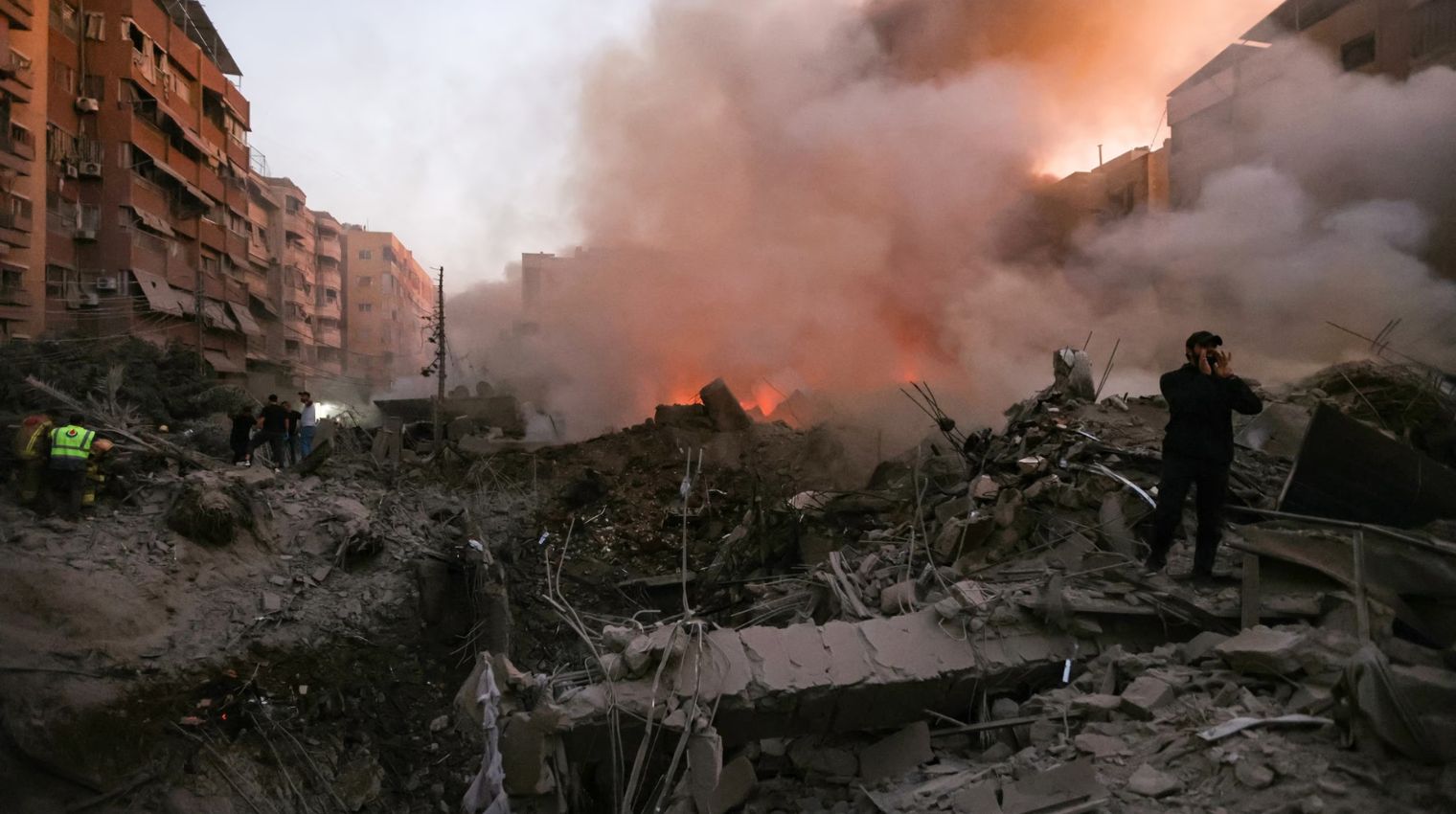After striking the Iran-backed Hezbollah organization’s main headquarters in a heavily populated section of the capital Beirut on Saturday, Israel persisted in hitting Lebanon with a barrage of large airstrikes in what appeared to be an attempt to assassinate the organization’s charismatic leader, Sayyed Hassan Nasrallah.
Hours after the deliberate attack, a spokesman for Hezbollah said Nasrallah was uninjured. Hajj Muhammad Afif, the group’s media relations officer, stated on Iranian television, “His Eminence the Secretary-General is fine and well and was not in the targeted location,” as NBC News reported.
Hezbollah stronghold Dahiyeh was attacked by many structures that were struck by Israeli airstrikes, according to the Israeli military. The strikes occurred in the southern suburbs of Beirut. The strikes reportedly demolished four buildings and left many massive craters and damaged nearby structures. The city was rocked by strong blasts.
Over nine persons were reported deceased and over ninety injured in the aftermath by Lebanon’s health ministry, while search and rescue efforts continued into the night.

The senior Hezbollah commanders were the target of the strikes. According to unconfirmed accounts, Hassan Nasrallah, the leader of the terrorist group, was present in the headquarters during the attack and subsequently became “unreachable”. But the militant group refuted this.
Several Hezbollah officers and operatives were reportedly killed in the strikes, according to the Israel Defense Forces (IDF). Hezbollah’s missile unit chief Muhammad Ali Ismail and his deputy were among them.
The bombings on Friday represent an intensification of the hostilities that began almost a year ago, and they coincide with efforts by the US and France to mediate a ceasefire between Israel and Hezbollah. It also coincides with Israel’s intensifying campaign against Hezbollah this month, which includes the targeted murder of terrorists with the use of detonating modified pagers and walkie-talkies.
Israeli Prime Minister Benjamin Netanyahu was addressing the United Nations General Assembly just moments before buildings were destroyed in Beirut. Netanyahu declared emphatically that Israel had been “tolerating this intolerable situation for nearly a year” and that “enough is enough.”
“As long as Hezbollah chooses the path of war, Israel has no choice, and Israel has every right to remove this threat and return our citizens to their homes safely,” Netanyahu stated.
Soon afterward, Beirut was rocked by many explosions. The morning was spent with explosions continuing in the capital of Lebanon.
“We will continue operating to precisely dismantle Hezbollah’s offensive capabilities,” the Israel Defense Forces stated. “Hezbollah has strategically embedded weapons in civilian areas, putting Lebanese civilians at risk in order to harm Israeli civilians.”
A statement released early on Saturday morning stated that the Israeli military had also begun another wave of airstrikes in the Beqaa region of Lebanon.
Long-standing geopolitical and geographical conflicts are the source of the current confrontation between Israel and Hezbollah; these tensions have only grown more intense in the year since Israel began large-scale military operations in Gaza.
More than 500 people have died in the most recent round of violence, which was started by Israeli bombings over Lebanon and included women and children. Hezbollah has responded by attacking Israeli airbases with missile fire. Since October 2023, when Hezbollah pledged its support for the Palestinians in Gaza in response to Israel’s military actions, these skirmishes have been nearly nonstop.
Hezbollah has stated unequivocally that the continuation of its attacks is dependent upon what Israel does in Gaza. Israel, on the other hand, has significantly increased the number of its military operations along the border with Lebanon, outpacing Hezbollah’s counterattack by thousands.
WEEKS OF ESCALATION
Hezbollah and Israeli forces have been engaged in ongoing cross-border clashes, which intensified earlier this month. Thousands of pagers and walkie-talkies detonated in two days as part of a devastating clandestine operation that injured almost 3,000 people and killed at least 37 in Lebanon.
The pager explosion was dubbed the “biggest security breach” that Hezbollah had ever experienced by one of its officials. Although Hezbollah, which is supported by Iran, and the Lebanese government accused Israel of causing the blasts, the Israeli military remained silent about the horrific assault.
The US and France attempted to mediate a 21-day interim ceasefire between Israel and Hezbollah amid concerns of a larger regional confrontation. But in the wake of Friday’s bombings on Beirut, the prospects for a ceasefire appeared to be dwindling.
Israel’s military on Friday moved more tanks and armored vehicles to its northern border with Lebanon, signaling preparations for a major ground invasion aimed at dismantling Hezbollah and its network, even though the operations in Lebanon have so far only involved aircraft strikes.


Leave a Reply